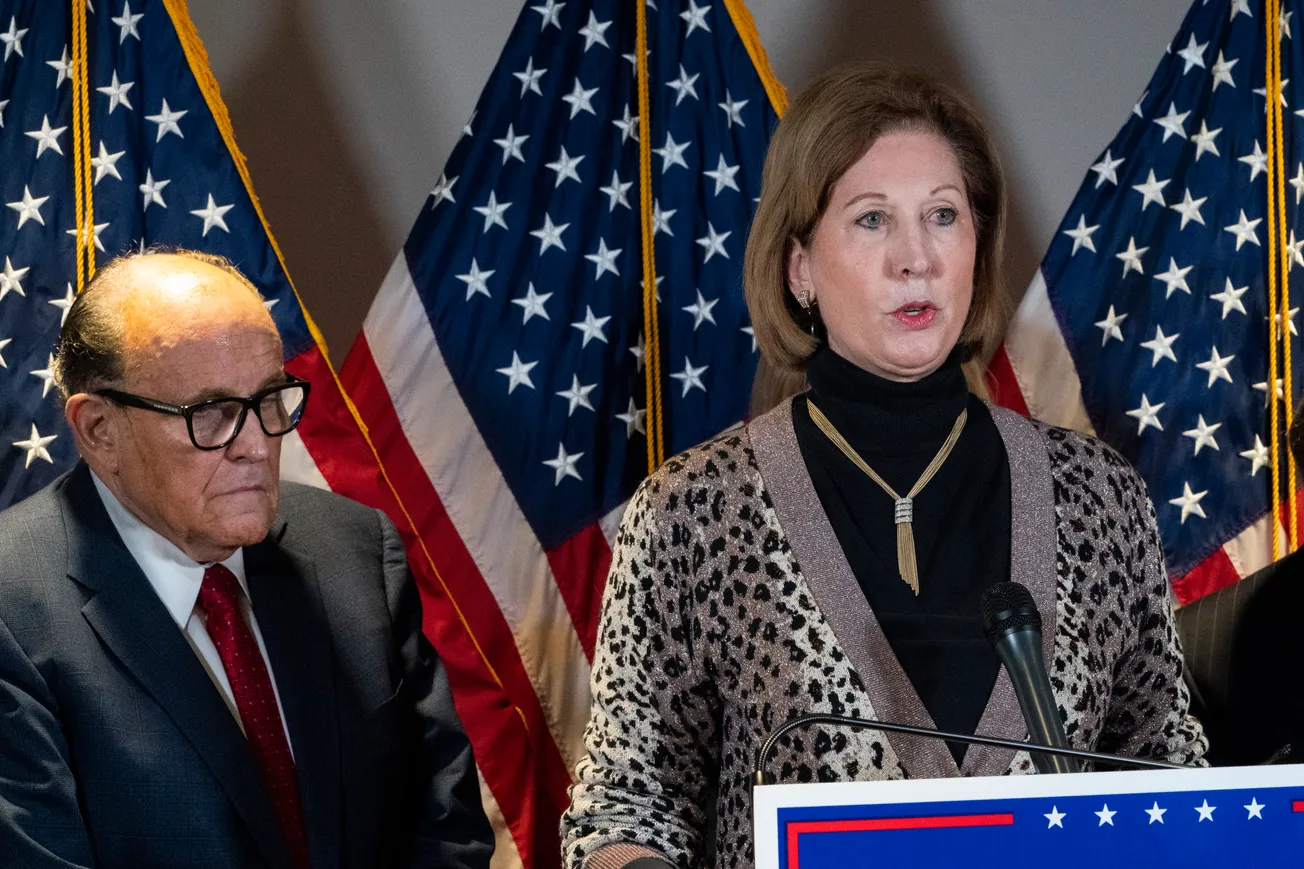Originally published in the Washington Monthly. Cross-posted with permission.
After the 2020 election, former President Donald Trump’s lawyer, Sidney Powell, promised lawsuits to “release the Kraken” and reveal election irregularities, even though she had no evidence for the baseless conspiracy theories she espoused.
Trump’s team of lawyers then filed some of the most frivolous lawsuits in recent memory, especially given that the election was not particularly close. The main point, it seems, was to create a political narrative of a stolen election. They used the courts to perpetuate the false implication of the Big Lie that Trump had actually won. In doing so, the lawyers brazenly abused the judicial system.
One of those lawsuits attempted to overturn the results in Michigan. It alleged a “wide-ranging interstate — and international — collaboration involving multiple public and private actors” to record “thousands of illegal, ineligible, duplicate or purely fictitious ballots.” Never mind that the lawyers had no evidence whatsoever for these claims. They made wild allegations about the use of Michigan’s voting machines, which they claimed were used in “a criminal conspiracy to manipulate Venezuelan elections in favor of dictator Hugo Chavez.” The lawsuit asked the federal court to order Michigan officials to cast the state’s electoral votes for Trump, who had lost the state by more than 150,000 votes—relief no federal court ever has or could offer.
In Colorado, lawyers filed another suit, purportedly on behalf of 160 million voters, against governors and secretaries of state in four battleground states, the voting machine manufacturer Dominion, and Facebook CEO Mark Zuckerberg and his wife, Pricilla Chan. The suit alleged, with no evidence, a massive conspiracy to alter the outcome of the 2020 election and sought a damages award of $160 billion, which the court, in its sanctions order issued Monday, wryly noted is larger than the GDP of Hungary.
Thankfully, these lawyers are now paying for their brazen attempts to overthrow America’s democracy. A federal judge in Michigan recently issued a scathing order sanctioning Powell, Georgia celebrity lawyer Lin Wood, and other lawyers for the frivolous lawsuit they filed last December to overturn the election results in that state. The Colorado court, too, sanctioned the lawyers for their frivolous lawsuit.
But it’s not enough: Powell, Wood, and the others should also lose their licenses to practice law.
As a law professor, I teach my students that the court system can help to secure justice and equality. I implore them to be zealous advocates for their clients. And I remind them that their ultimate obligation is to the truth. First-year law students learn about lawyers’ duties to the judicial system, and the American Bar Association requires all law students to take a course in professional responsibility. In addition to the bar exam, lawyers in almost all states must pass an ethics-specific exam. Most states also require continuing legal education that includes annual ethics training.
All of this is to say that these lawyers knew what they were doing and that their conduct was unbecoming of a lawyer. They had no facts. The law was not on their side. They simply used the courts as part of a dangerous political narrative.
This is not to suggest that lawyers should never file suit in an election case. Courts should be important protectors of the right to vote. But lawyers should not be allowed to abuse the system without reprimand.
The Michigan federal court minced no words in making this point in its 110-page sanctions opinion. The opening paragraph says it all: “It is one thing to take on the charge of vindicating rights associated with an allegedly fraudulent election. It is another to take on the charge of deceiving a federal court and the American people into believing that rights were infringed, without regard to whether any laws or rights were in fact violated.”
The Colorado court had similarly harsh words: “Albeit disorganized and fantastical, the Complaint’s allegations are extraordinarily serious and, if accepted as true by large numbers of people, are the stuff of which violent insurrections are made.”
The fact is that these lawyers had no evidence of improprieties and failed to conduct even a cursory investigation into the relevant election law. They used the courts to affect public opinion without any regard for the consequences of that deceit. Those consequences were stark, as the January 6 insurrection at the U.S. Capitol demonstrated. Millions of Americans believe that the 2020 election was rife with fraud because lawyers like Powell and the others spouted that baseless idea in lawsuits.
Worse yet, these lawyers have time and again exhibited shockingly duplicitous behavior. In a hearing over the Michigan court’s deliberations to impose sanctions on the members of Trump’s legal team, Powell compared her advocacy to Thurgood Marshall’s in the famous Brown v. Board of Education case, which challenged segregated schools. It’s offensive, to say the least, to compare the struggle for racial equality with an effort to subvert the will of the American electorate. As the court put it in the sanctions order: “Brown arose from an undeniable history during which Black Americans were treated as second-class citizens through legalized segregation in the schools of our country. In stark comparison, the present matter is built on fantastical claims and conspiracy theories.”
Ultimately, the court ordered Powell, Wood, and the other lawyers to pay legal fees and take twelve hours of continuing legal education. But the lawyers are not likely to suffer much; as the court itself noted, Powell has been fundraising off of her efforts to overturn the 2020 election, meaning that the monetary fines will probably not harm her financially. That is especially disconcerting, because without strong deterrence, unscrupulous lawyers will likely try to use the courts again in 2024 to make their political arguments, unfounded as they may be.
Thankfully, the Michigan judge also referred all the lawyers to their state bars for possible suspension or disbarment. The Colorado court, which ordered the lawyers to pay the defendants’ attorney’s fees, should do the same. These sanctions can make a difference, as future election lawyers may think twice before using the courts to perpetuate a massive fraud on the public if they know they might lose their bar licenses.
A lawyer is a public servant. But these lawyers did not serve the public. They caused immense harm, using their positions of trust as lawyers to deceive the courts and the public. They should no longer enjoy the privilege of practicing law.
--30--
Written by Dr. Joshua Douglass of the University of Kentucky J. David Rosenberg College of Law. He is the author of “Vote for US: How to Take Back Our Elections and Change the Future of Voting.” Find him at joshuaadouglass.com.
Comments







